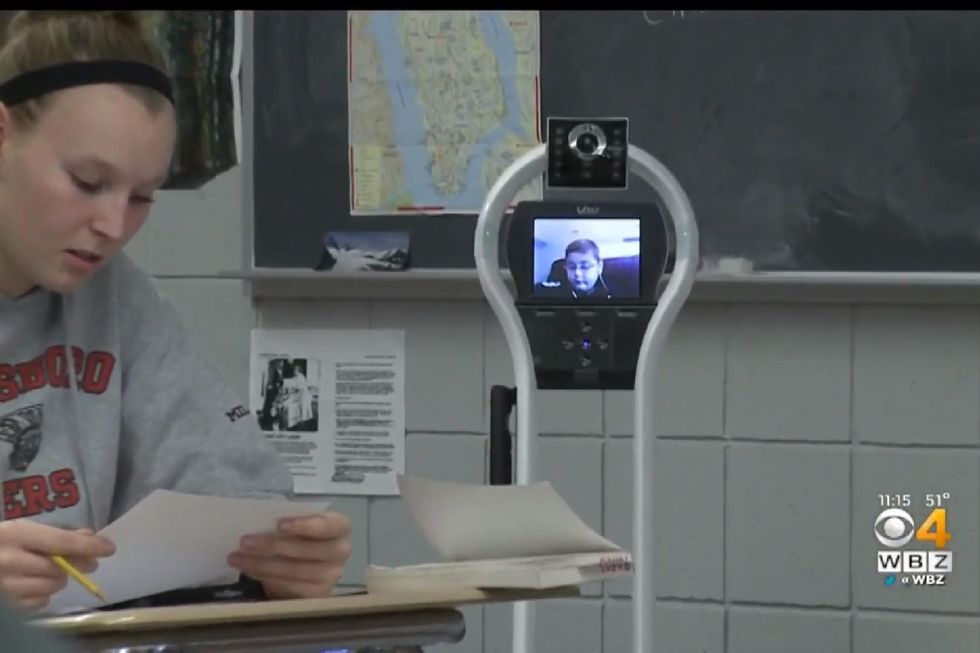
Keegan Concannon, a seventh-grader with an immune condition, attends school using a robot. Keegan will use a VGo robot, which can be controlled remotely from his laptop at home, to attend classes. (Image source: WBZ-TV video screenshot)

Thanks to a Voluntary Compliance Agreement between his public school and the Massachusetts U.S. Attorney, a seventh-grader with an immune condition will be able to attend school using a robot. This decision will also affect all public schools in Massachusetts.
Keegan Concannon has an immune deficiency that forced him to stay home 115 days out of the past school year. He still tries hard at his schoolwork, though, and managed to make a 4.0 GPA, despite his absences.
Now, 13-year-old Keegan will use a VGo robot to attend classes. The robot can be controlled remotely from his laptop at home, and it allows him to see and hear his teachers and other classmates, and even to communicate with them. The simple design cannot pick up or hold anything, but it can be driven down the halls and into classrooms.
Robots like this one generally cost around $6,000, but Keegan got his for free through a grant from Grahamtastic Connection, a group that strives “to provide free computers, laptops, tablets, robotic technology and internet access to children with cancer and other serious illnesses for educational purposes.”
While the state and Hudson Public Schools came to a mutual agreement, Monday's decision from the state attorney's office will impact all other public schools in the state. According to the news release:
Among other things, Title II of the ADA [Americans with Disabilities Act] requires public entities, such as public schools, to take those steps necessary to ensure that communications with individuals with disabilities are as effective as communications with others, including through the use of auxiliary aids and services. The goal is to afford individuals with disabilities an equal opportunity to participate in, and enjoy the benefits of a service, program or activity of a public entity.
Keegan's mother, Laura Concannon, says that while she's happy with the decision, she does not want this to stop with just Masschusetts.
“My next journey is to make this much more official through the Department of Education,” she told Boston CBS affiliate WBZ-TV. “I don’t plan on stopping here.”
His father, Robert Concannon, echoed that sentiment. “Why not be on the forefront of something instead of staying in the past?” he told WBZ. “Put Hudson on the map. Say, ‘Hey we’re doing this, follow our lead.’”